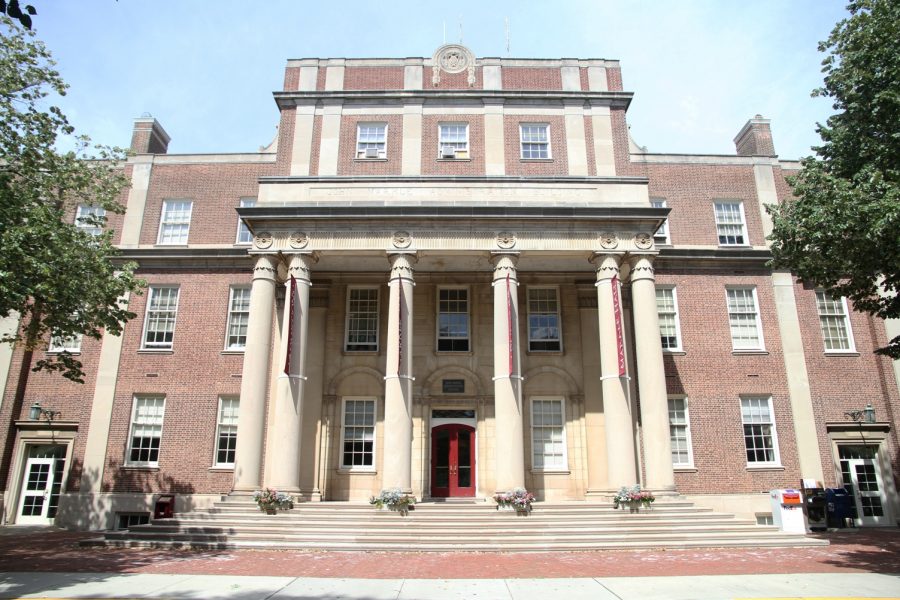President Donald Trump’s proposed budget for 2018 would drastically cut funds for many academic endeavors. Many people within the academic world, including Lafayette professors, have been left wondering about what this could mean for their work.
The budget proposes eliminating the National Endowment for Humanities entirely, reducing the funds of National Institutes of Health, and possibly cutting the National Science Foundation, which may be included in the category of “other agencies” and subject to a 9.8 percent cut, according to The Atlantic.
The research of 31 Lafayette professors has benefitted from these endowments and programs, and at least a few remain unsure of the impact the cuts could have on their work.
Provost Abu Rizvi, however, wrote in an email that the college is confident that it could adjust accordingly to potential cuts.
“If the proposed cuts go through it’s important to keep in mind that while the funding we receive from the government is significant — $1.25 million annually in grants provides valuable support for our students and faculty members — it is a small portion of Lafayette’s overall budget,” Rizvi wrote.
“The grant funding from federal agencies is less than 1 percent of our operating revenue,” he wrote. “Given that we fund research in a variety of ways, have healthy operating budgets, strong sources of revenue, and good fundraising capabilities from generous private individuals and foundations, I think we have the ability to adapt well to this new environment.”
English professor James Woolley wrote in an email that he benefitted from a three-year grant from the NEH and added that beyond the money the NEH provides, the program motivates academic quality throughout the nation.
“The mere possibility of getting NEH funding stimulates many faculty members to do good research that remains unfunded,” Woolley wrote. “So the benefit to the humanities as a field far exceeds the cost of NEH funds actually expended. The total amount of the NEH annual budget is tiny in relation to the overall national budget….For these reasons, I would consider the NEH to be providing a tremendous bargain to the public. Yet President Trump has proposed to cut the NEH budget to $0.”
English and theater professor Suzanne Westfall has also received funding from the NEH, and is worried about what losing the NEH might mean. She said that without the NEH, “my own work could not happen.”
Math professor Elizabeth McMahon said she is concerned about potentially losing funding for Lafayette’s participation in NSF Research Experience for Undergraduates math program. The program entails hosting ten students for eight weeks over the summer, and this is the first year that Lafayette has hosted this program.
“It’s good for increasing access to mathematics, increasing the cohort of future professors, and it’s a good thing,” McMahon said. “And it’s good for Lafayette. It brings students from across the country.”
Without the funding from NSF, these students would not be able to engage in research opportunities and gain experience. The program received $270,000 for the program to be run each of the next three summers, and that was ninety percent of what McMahon originally asked for.
She said she remains unsure whether her funding would be secure under the proposed budget.
Civil and environmental engineering professor Mary Roth has been receiving funding from the National Science Foundation since 1995. She said that the research that the NSF funds is crucial to the American society and economy.
“I would be very disappointed if the NSF was asked to operate and continue with less money, because they really are a source of funding for fundamental research in many areas, and that’s an important part of what drives the economy – to have that research done,” Roth said. “Because that’s what eventually bubbles up into actual applications and changes that occur.”
McMahon added that Trump’s trips to Mar-a-lago cost significantly more than the funding for the program. Politico reported that the trips cost $3 million every time.


















































































































